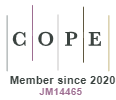The need for the modernization of the international anti-drug policy as a form of the effectiveness of human rights
DOI:
https://doi.org/10.5585/rtj.v7i2.461Keywords:
Drug policies, Proibicionism, Harm Reduction, Human Rights, Brazil.Abstract
Around the world, governments have begun to openly question the effectiveness of repressive anti-drug policies, which makes timely, at this point, the proposition of intermediary measures between prohibition and legalization, with strong influence of harm reduction strategies seeking to minimize the scope of the repressive sphere, in line with the minimum criminal law. Moreover, the international prohibitionist drug policy is responsible for a range of human rights violations around the world, which makes this dialogue urgent and necessary. The article analyzes the changes in the current model of drug war - of prohibitionist bias – based on new international experiences and the last Special Session of the UN General Assembly (UNGASS), given the ineffectiveness of repressive policies which generate violence, imprisonment and violations of rights. Based on the analysis of the effects of implementation of the International System of Drug Control and critical elements in relation to human rights violations in Brazil and in the world, the challenges for the coming decades are identified as: need to implement public policies that prioritize the most vulnerable groups, structuring programs for prevention and harm reduction, adoption of alternative sentencing and creating objective criteria to differentiate between use and drug trafficking, all this in a sustainable manner, respecting regional diversity and combating poverty and curtailment of rights.






